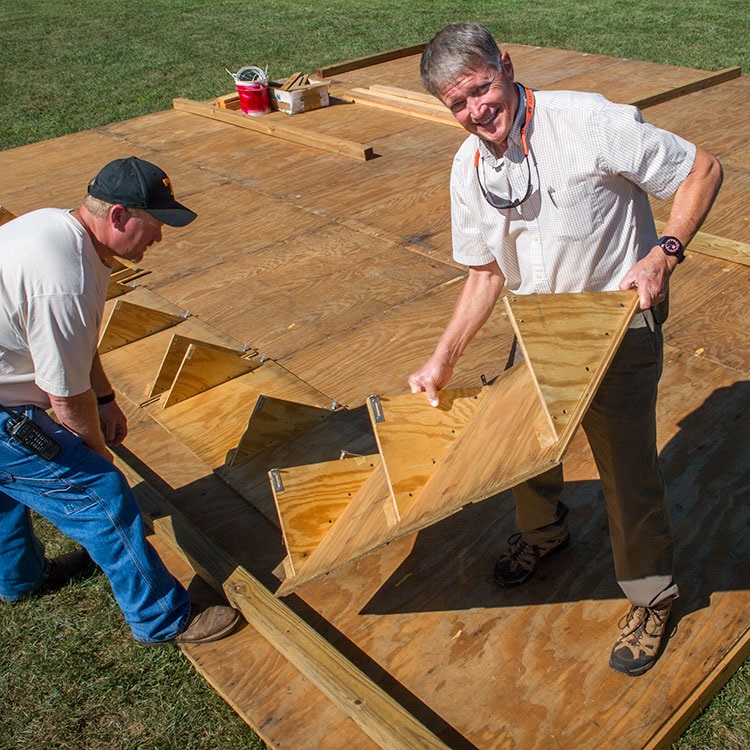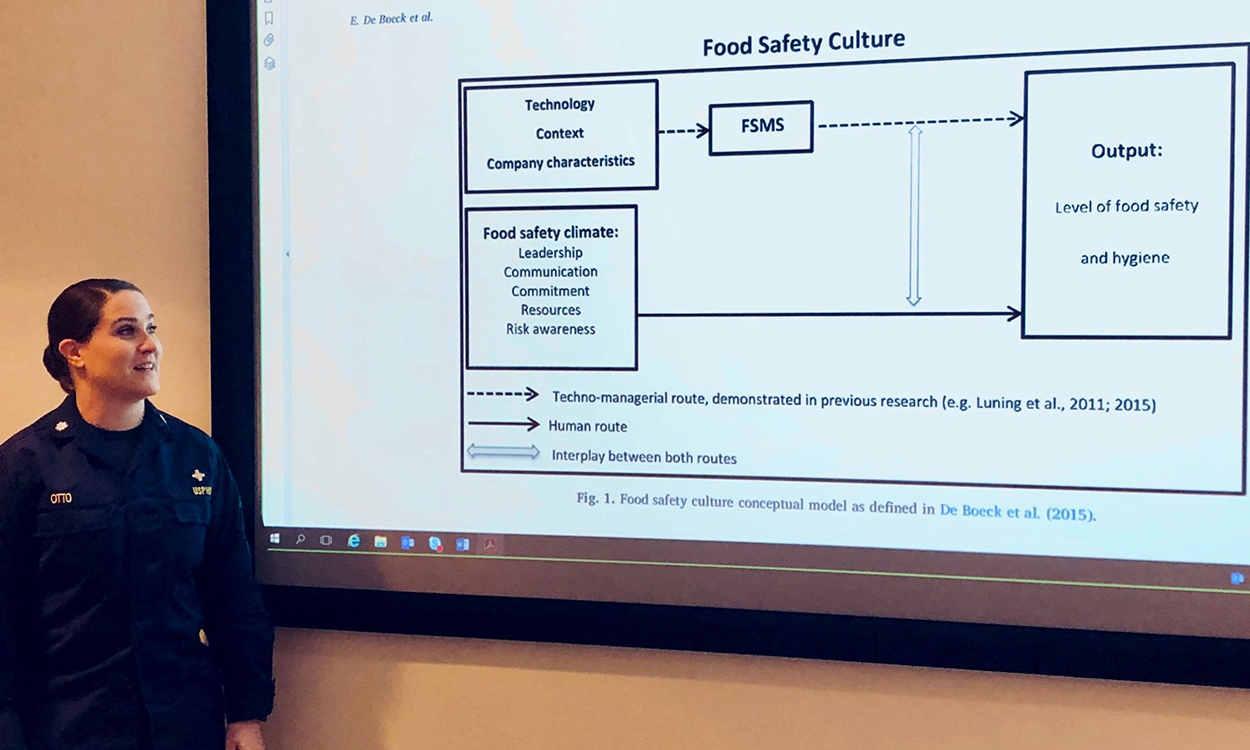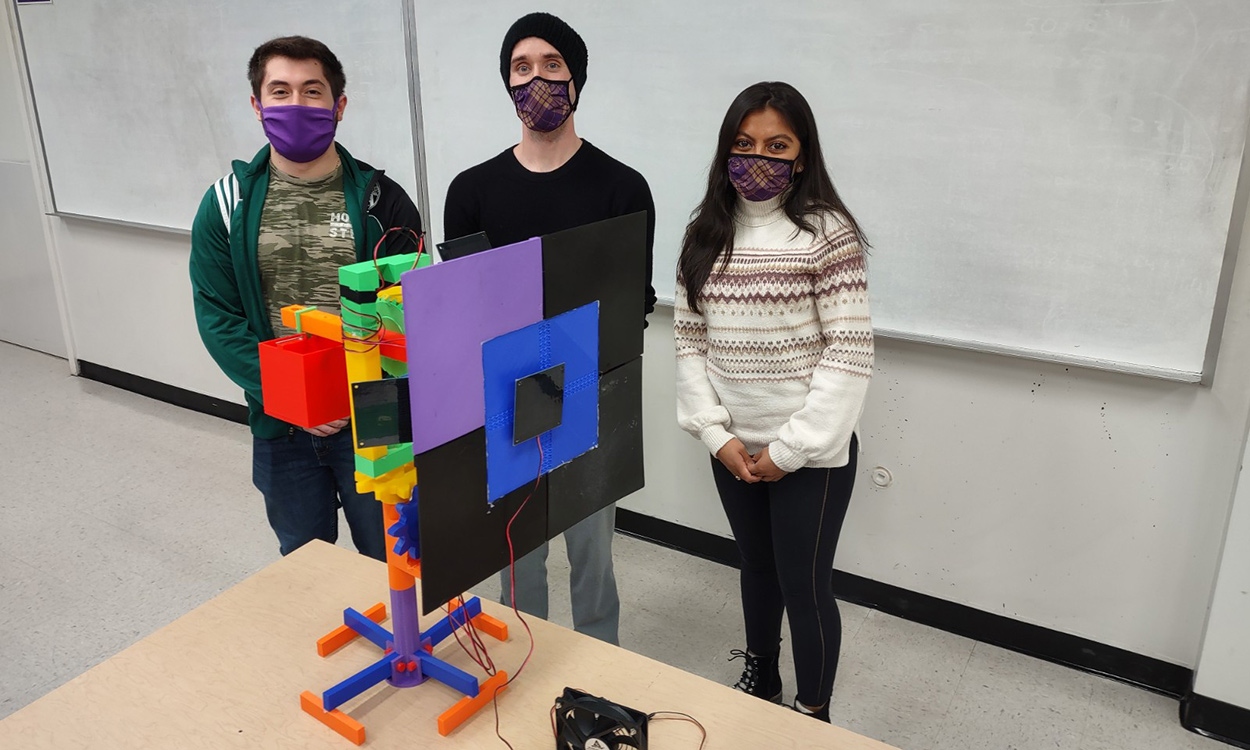Campus and community volunteers are backbone of university's biggest public event
It’s the fry bread for some, the music for others and the authentic mountain folk arts for even more. But, for the hundreds of volunteers and Western Carolina University employees who pull it all together, Mountain Heritage Day represents something bigger: a piece of the region’s soul.
“What makes it so special is the joy of seeing the community come together to celebrate Western North Carolina’s heritage, especially in today’s world where there’s so much that divides and separates us,” said Mark Haskett, recently retired director of photography and videography at WCU who has been involved with the festival for 41 of its 45 years. “To have something the community rallies around is more important than it’s ever been. That’s what Chancellor (H.F. "Cotton") Robinson wanted, and it’s even more important now than it was more than 40 years ago, when it first came together.”
Begun unofficially in 1974 as a barbecue to celebrate Robinson's inauguration, Mountain Heritage Day has grown into a celebration to share and honor the culture of WNC, said Peter Koch, education associate for WCU’s Mountain Heritage Center, which is heavily involved in the operation of the event. “Mountain Heritage Day is part of Western’s gift back to the region,” Koch said, and is made possible by area sponsors and hundreds of volunteers.

Roger Turk
Named one of the top 20 events in the Southeast by the Southeast Tourism Society, Mountain Heritage Day — set for Saturday, Sept. 28, on fields behind the Cordelia Camp Building — features music, food, traditional folk arts, crafts and other activities that reflect the culture of WNC and remind visitors and volunteers alike what makes the region so special. Attendance at the festival ebbs and flows between 10,000 and 20,000 visitors a year, with the average around 14,000, said Roger Turk, WCU’s grounds superintendent in Facilities Management, a WCU employee for 30 years, and a big fan of the event, which is held rain or shine. (He loves the fry bread).
“I tell my employees that we have two very important events a year on this campus. One of those obviously is graduation, the biggest academic event of the year,” Turk said. “But our biggest public event is Mountain Heritage Day because there may be people who come here who will never come to anything else, and that’s like the public face of the university.”
The backbone of the festival’s success is its volunteers, which include WCU students, faculty, staff and members of the local community, said Jennifer Cooper, associate director of the Center for Community Engagement and Service Learning. “The average number of volunteers for the past five years is 163, giving 585 hours. Most of them will work about four hours,” Cooper said.
One of those volunteers is Richard Tichich, professor in the School of Art and Design in the Belcher College of Fine and Performing Arts, who has worked the last “five or six” Mountain Heritage Days. “I volunteer because it is a pleasure working with others with a wide range of talents and interests,” Tichich said. “It is obvious that this joint effort is far more powerful and interesting than anything we could do alone.”
Kenny Jordan, assistant professor of hospitality and tourism management, sees Mountain Heritage Day as an exceptional opportunity outside of the classroom for experiential learning for students in his hospitality and tourism classes. “Because the setting is different, it helps solidify what you teach in a course in a hands-on, practical manner,” Jordan said.

WCU students are an important part of the volunteer staff for the festival.
And then there is Norman Parris, who at 81 years of age said this is his last year to coordinate and compete in the chainsaw competition, one of the most popular events among volunteers and festivalgoers. “I don’t want to, but it’s time,” he said. “But, I’ll be around to help the guys out.”
Parris said he has been running the contest since 2004 and participating since the mid-1980s. “My wife entered the jelly contest and the vegetables contest, and I heard the chainsaws going, so I watched for a while before I entered,” he said. It took him two or three years to enter the contest.
The competition comes down to who can make two cuts through a 12-inch-by-12-inch log the fastest. “It’s fierce competition, and it’s just fun,” he said. Parris credits his late wife with helping him finally win the competition. “About 1991 or ’92, my wife bought me a modified saw, and I started winning it,” he said. He has about 40 trophies at home.
Parris, who retired from the Sylva Herald years ago, is turning the reins over to his step-grandson, Dell Pittman, and Blair Spangler. Pittman credits Parris with teaching him how to use a chainsaw when he was just a boy — he cut a locust tree for firewood — a skill that has won him the chainsaw and crosscut competitions. “Way back in the early day, the only kind of saws we had were crosscut saws,” said Pittman, who works for the North Carolina Department of Transportation and runs monster truck competitions all over the world.
Volunteer Jim Rowell said he’s been working the festival so long that he knows all the ins-and-outs, which makes him valuable to its organizers. “I just volunteer to help out with whatever needs to be done on that day,” said Rowell, who retired as WCU’s director of public information and has been involved with Mountain Heritage Day for at least 40 years. “If I have a performer who needs to go to the bathroom right before they go on stage, I know where the cleanest bathroom with the shortest line is.”

Ready to roll are Tom Frazier (foreground) and Jim Rowell.
Rowell, a former chairman of the festival committee, has watched the event evolve over years as times have changed. The festival used to have a moonshine-making demonstration, complete with local law enforcement guarding the still. The watermelon seed spitting contest has disappeared as has the ban on soft drinks. He said he would love to see his favorite — the baked goods and canning contest — make a resurgence back to its glory days. “In the early years of Mountain Heritage Day, they were sights to behold. There would be five or six stands that were loaded with canned goods people had put up for the winter,” he said. “And, the baked goods contest was when people took who made the best biscuits seriously.”
Despite Mountain Heritage Day’s tweaks to accommodate its growing crowds, the festival’s mainstays — the music and folk arts demonstrations — are what keep the event grounded and a living memorial to its mountain roots.
“Saturday, Sept. 28, will mark 45 years that Western Carolina University has set aside a day to celebrate all the things that come together to make the mountains our home, the beginnings that led to this moment, and the new traditions that point to our future,” said Geoff Cantrell of University Communications and Marketing, who serves as Mountain Heritage Day marketing and publicity director. “It’s an heirloom festival, in my opinion, hopefully to be passed down for another 45 years or more. Everything throughout the day is a sensory experience and family fun. At its heart, Mountain Heritage Day is about community, one that WCU is proud to be an integral part of.”
For more information, go to www.mountainheritageday.com.

